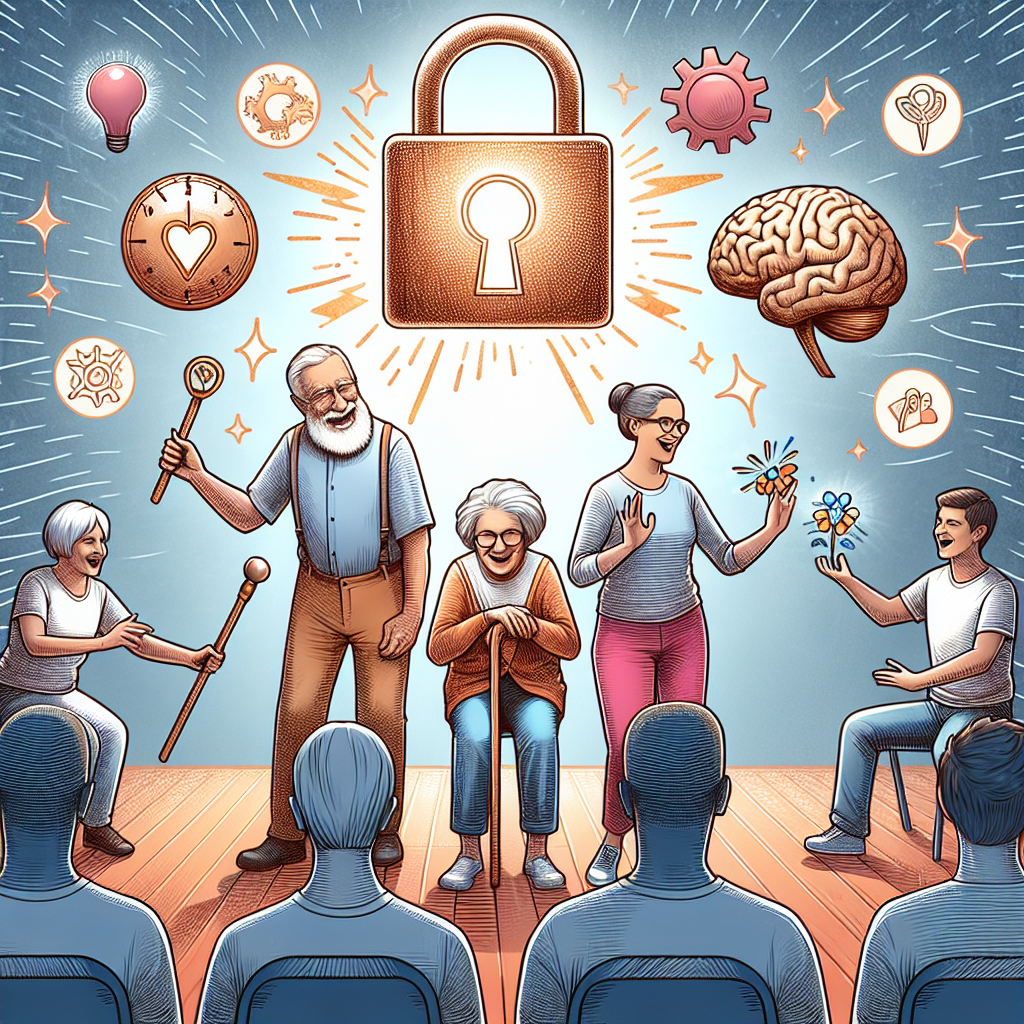Unlocking Creativity: The Surprising Benefits of Improv Training for All Ages
In the quest for personal growth and improved mental agility, people are turning to unusual methods that promise to unlock the hidden potential within them. Among these methods, improv training stands out not only for its engaging and entertaining nature but also for its surprising range of benefits that cater to all ages. From school children to retirees, improv is proving to be an effective tool in enhancing cognitive abilities, fostering creativity, and building social skills.
The Basics of Improv
Improv, short for improvisational theater, involves creating scenes, characters, and dialogues on the spot without a script. Performers rely on quick thinking, collaboration, and spontaneity, making each performance unique. This art form is not only about entertaining; it’s about navigating the unpredictable, embracing the unknown, and trusting one’s instincts.
Cognitive Flexibility and Mental Agility
One of the most significant benefits of improv training is its ability to enhance cognitive flexibility. Participants learn to think quickly and adaptively, which helps improve problem-solving skills and mental agility. Studies have shown that engaging in improv can increase the brain’s ability to switch between different tasks efficiently and manage unexpected scenarios, a skill that is invaluable in everyday life.
Boosting Creativity
Improvisation naturally cultivates creativity. It encourages thinking outside the box, exploring new ideas, and embracing failure as a learning opportunity. In a world where innovation is highly valued, sharpening creative skills can give individuals a competitive edge in various fields. For children, in particular, this can translate into improved academic performance and a greater enthusiasm for learning.
Emotional and Social Benefits
Improv training has profound emotional and social benefits. It fosters an environment of trust, acceptance, and support, where individuals feel safe to express themselves without fear of judgment. This can lead to increased self-confidence and reduced social anxiety. Participants often report feeling more connected to others and more comfortable in social situations, thanks to the teamwork and communication skills acquired through improv exercises.
Stress Relief and Well-being
Engaging in improv can also be a fantastic stress reliever. The playful and laughter-filled environment is a natural antidote to stress, encouraging relaxation and a positive outlook. In addition, the act of immersing oneself entirely in the present moment (a hallmark of improv) can mirror mindfulness practices, promoting mental clarity and emotional well-being.
Accessibility for All Ages
One of the most appealing aspects of improv is its accessibility. Unlike many forms of art or physical exercise, there are no significant barriers to entry. It is inclusive and adaptable, making it suitable for people of all ages and backgrounds. From classrooms to corporate workshops, community centers to retirement homes, improv training can be tailored to meet the needs of diverse groups.
Implications for Education and Workforce Development
Incorporating improv into educational curricula or professional development programs can yield significant results. For students, it can enhance engagement, improve listening skills, and foster an environment of collaborative learning. For professionals, it can boost leadership skills, team dynamics, and creative problem-solving abilities.
Conclusion
Improv training is more than just a performance art—it’s a powerful tool for unlocking the hidden potential in individuals of all ages. By enhancing cognitive abilities, fostering creativity, and building social skills, improv offers unexpected yet profound benefits. As more people discover the joys and advantages of improv, it’s clear that this dynamic and inclusive practice will continue to grow as a cornerstone of personal development and lifelong learning.
